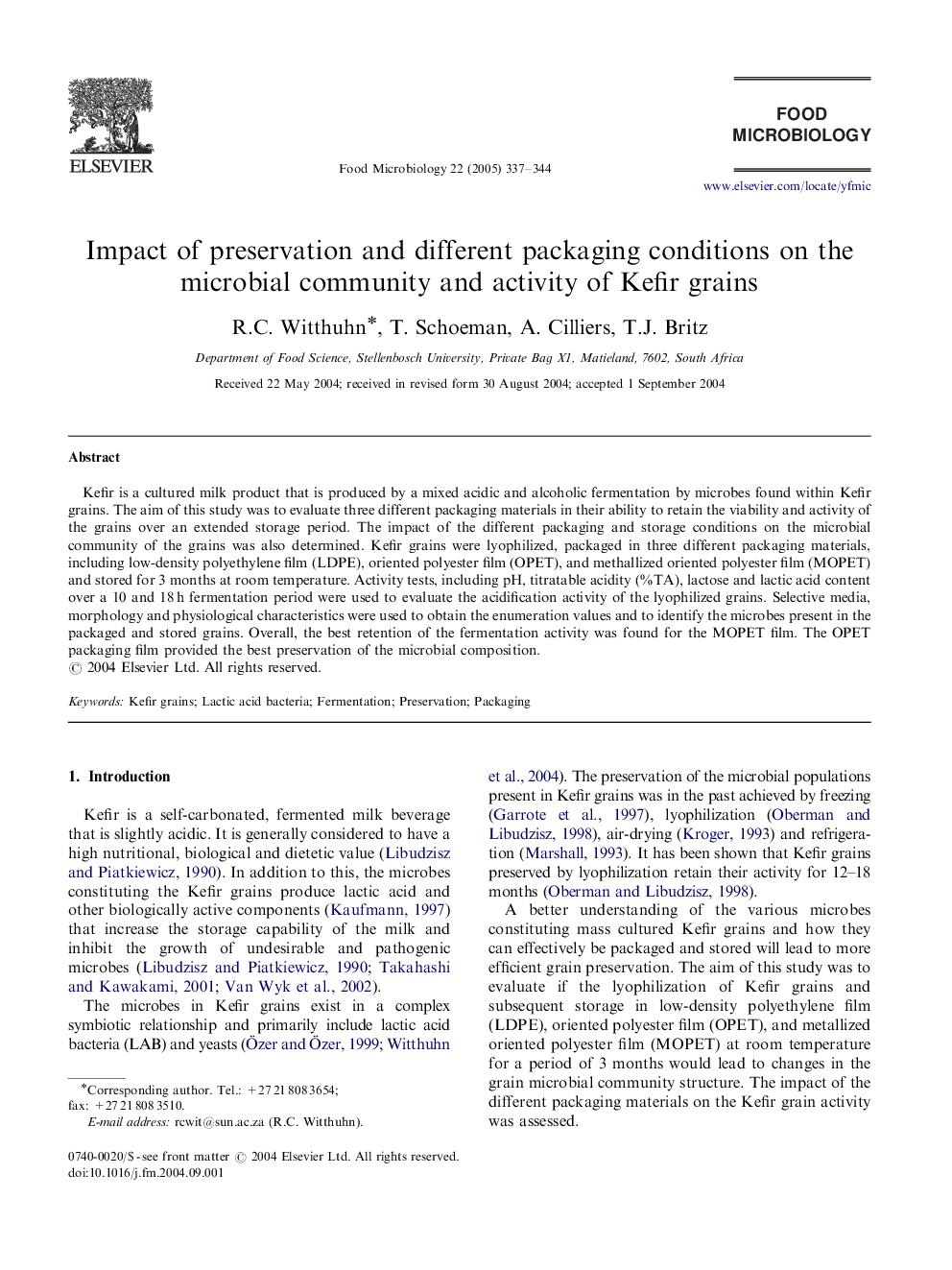| Article ID | Journal | Published Year | Pages | File Type |
|---|---|---|---|---|
| 9441930 | Food Microbiology | 2005 | 8 Pages |
Abstract
Kefir is a cultured milk product that is produced by a mixed acidic and alcoholic fermentation by microbes found within Kefir grains. The aim of this study was to evaluate three different packaging materials in their ability to retain the viability and activity of the grains over an extended storage period. The impact of the different packaging and storage conditions on the microbial community of the grains was also determined. Kefir grains were lyophilized, packaged in three different packaging materials, including low-density polyethylene film (LDPE), oriented polyester film (OPET), and methallized oriented polyester film (MOPET) and stored for 3 months at room temperature. Activity tests, including pH, titratable acidity (%TA), lactose and lactic acid content over a 10 and 18Â h fermentation period were used to evaluate the acidification activity of the lyophilized grains. Selective media, morphology and physiological characteristics were used to obtain the enumeration values and to identify the microbes present in the packaged and stored grains. Overall, the best retention of the fermentation activity was found for the MOPET film. The OPET packaging film provided the best preservation of the microbial composition.
Related Topics
Life Sciences
Agricultural and Biological Sciences
Food Science
Authors
R.C. Witthuhn, T. Schoeman, A. Cilliers, T.J. Britz,
